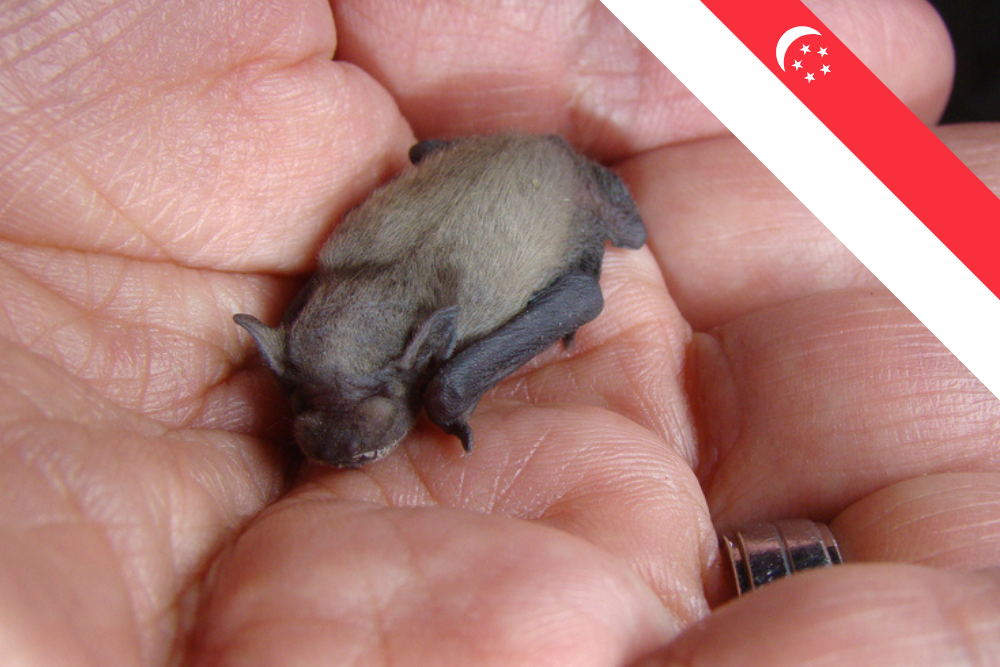Boosting Research for Defence Against Diseases Spread from Animals to Humans
With climate change, deforestation, and cross-border animal trade increasing the risk of zoonotic diseases, Singapore is boosting research to understand the links between human, animal, and environmental health. The National Parks Board (NParks) will call for research proposals in 2024 under its new Biosurveillance Research Programme to detect and prevent future outbreaks.
Increasing Risk of Zoonotic Diseases
Zoonotic diseases, those transmitted from animals to humans, pose a growing threat due to climate change and habitat destruction. Factors such as urbanisation, increased human-animal interactions, and global trade of animals exacerbate this risk. When smuggled pets with unknown health statuses evade biosecurity controls, the likelihood of disease transmission to humans rises significantly.
Singapore has recognised the urgent need to address these escalating threats. Recent pandemics have emphasised the importance of preemptive measures in public health strategies. Understanding and mitigating zoonotic disease risks is crucial for preventing future outbreaks that could have devastating global impacts.
New Biosurveillance Research Programme
The Ministry of National Development announced a $15 million fund for the Biosurveillance Research Programme during the March budget debate. This programme aims to understand how various drivers like animal trade, climate change, and urbanisation influence zoonotic disease risks. NParks encourages research proposals focusing on genomic analysis of pathogens from environmental samples such as air, water, soil, and insects.
This initiative is not only a national priority but also aligns with global efforts to combat zoonotic diseases. By integrating cutting-edge technologies and interdisciplinary research, Singapore aims to lead the way in biosurveillance and proactive health measures.
Importance of Genomic Analysis
Dr. Chua Tze Hoong, group director of veterinary health at NParks, highlighted the importance of genomic analysis. Notably, it can identify the presence of pathogens in animals, trace their origins, and determine genetic markers that increase virulence. This information is crucial for mitigating the risk of zoonotic disease outbreaks.
Moreover, genomic analysis provides a detailed understanding of pathogen evolution and transmission patterns. It enables scientists to predict potential outbreaks and implement timely interventions. By analysing genetic materials from environmental samples, researchers can detect pathogens early and subsequently prevent their spread.
Understanding Disease Drivers and Mitigation Strategies
Research will explore how factors such as animal trade and climate change affect the movement of animal hosts and the transmission of zoonotic diseases. By understanding these interactions, researchers can help develop strategies to address these drivers and consequently mitigate transmission risks. Additionally, the programme will focus on studying priority diseases like avian influenza, rabies, and leptospirosis, a bacterial infection transmitted by rodents.
Furthermore, modelling and observational studies will provide deeper insights into the dynamics of zoonotic disease transmission. This knowledge will subsequently inform policies and practices aimed at reducing human-animal interactions that facilitate pathogen spillover. Therefore, effective mitigation strategies will include land-use planning, habitat restoration, and targeted animal management measures.
Global Attention on Zoonotic Disease Prevention
Globally, attention to zoonotic disease prevention is growing. A team of 25 scientists, led by an expert from Cornell University, proposed a roadmap to prevent pandemics by conserving natural areas and promoting biodiversity. The study, published in Nature Communications in March, emphasised reducing the likelihood of disease transmission from animals to humans.
The roadmap advocates for a holistic approach to pandemic prevention. It highlights the need to address environmental degradation and promote sustainable practices. By protecting natural habitats and maintaining biodiversity, the risk of zoonotic disease outbreaks can be significantly reduced.
Protecting Natural Habitats to Prevent Disease Spread
Insights from studies show that protecting natural habitats can act as buffers, limiting disease transmission from wildlife to humans. For instance, when bats lose their habitats, they migrate to urban areas, increasing the risk of spreading viruses. Providing adequate food sources in natural habitats can reduce stress in wildlife and lower the risk of virus shedding.
These findings highlight the importance of conserving ecosystems. Healthy ecosystems support diverse wildlife populations and prevent the emergence of new pathogens. Habitat conservation efforts must be integrated into public health strategies to mitigate zoonotic disease risks.
Intergovernmental Panel for Pandemic Prevention
The study also proposed an Intergovernmental Panel for Pandemics to assess and synthesise data on pandemic prevention and response. This panel would develop metrics to evaluate the effectiveness of programmes aimed at mitigating pandemic risks through conservation efforts.
An intergovernmental approach ensures coordinated actions and resource allocation. By sharing data and best practices, countries can strengthen their pandemic preparedness. The panel would provide a platform for collaboration and innovation in zoonotic disease research and prevention.
Singapore’s Commitment to Research and Biodiversity
In his speech during the Committee of Supply Debate, Senior Minister of State Tan Kiat How emphasised Singapore’s commitment to becoming a City in Nature. The government is enhancing green spaces, restoring nature, and strengthening ecological connectivity. NParks is also developing a $15 million Biosurveillance Research Programme to harness technologies across disciplines like genomics and disease modelling. This programme will enhance understanding of zoonotic disease transmission and inform effective mitigation strategies.
Singapore’s City in Nature vision integrates environmental sustainability with public health goals. The initiative aims to create a resilient urban ecosystem that supports biodiversity and reduces zoonotic disease risks. By investing in research and innovation, Singapore is positioning itself as a leader in zoonotic disease prevention.
The Role of Public Awareness and Education
Public awareness and education are vital components of zoonotic disease prevention. Educating the community about the risks associated with zoonotic diseases and promoting responsible behaviours can significantly reduce transmission risks. NParks and other agencies are working to increase public understanding of how human activities impact zoonotic disease dynamics.
Community engagement programmes, workshops, and public campaigns can raise awareness about the importance of biodiversity and ecosystem health. By fostering a culture of conservation and responsible interaction with wildlife, Singapore can enhance its biosurveillance efforts and protect public health.
Integrating One Health Approaches
The One Health approach, which recognises the interconnectedness of human, animal, and environmental health, is central to Singapore’s strategy. This holistic approach facilitates collaboration across sectors and disciplines to address the root causes of zoonotic disease outbreaks.
By integrating One Health principles into policy and practice, Singapore can develop comprehensive strategies to prevent zoonotic diseases. This includes enhancing surveillance systems, improving veterinary health services, and promoting sustainable agricultural practices.
Collaborative Research and Innovation
Singapore’s commitment to zoonotic disease research involves collaboration with international experts and institutions. By partnering with leading research organisations, Singapore can leverage global expertise and resources to advance its biosurveillance capabilities.
Joint research initiatives and knowledge exchange programmes can foster innovation and accelerate the development of effective zoonotic disease prevention strategies. These collaborations also provide opportunities for capacity building and training for local researchers and healthcare professionals.
Technological Advancements in Biosurveillance
Technological advancements play a crucial role in enhancing biosurveillance systems. Emerging technologies like artificial intelligence, machine learning, and big data analytics can improve the detection, monitoring, and prediction of zoonotic disease outbreaks.
By integrating these technologies into biosurveillance programmes, Singapore can enhance its ability to respond to potential threats swiftly. Advanced diagnostic tools and remote sensing technologies can provide real-time data on environmental and animal health, enabling proactive measures to prevent disease transmission.
Sustainable Development and Public Health
Sustainable development is integral to public health and zoonotic disease prevention. Urban planning and development policies must consider the impact on ecosystems and wildlife habitats. By promoting sustainable practices, Singapore can minimise environmental disruptions that increase zoonotic disease risks.
Policies that support green infrastructure, renewable energy, and sustainable agriculture can contribute to healthier ecosystems. These efforts align with Singapore’s vision of a City in Nature and reinforce its commitment to environmental stewardship and public health protection.
Proactive Steps to Safeguard Public Health
Singapore’s focus on zoonotic disease research is a proactive step towards preventing future outbreaks. By understanding the interplay between human, animal, and environmental health, the country aims to develop effective strategies to mitigate zoonotic disease risks. The Biosurveillance Research Programme and global collaborations highlight Singapore’s commitment to safeguarding public health through innovative research and conservation efforts.
The comprehensive approach combines cutting-edge science, technological innovation, and community engagement. By investing in research and fostering international partnerships, Singapore is enhancing its resilience against zoonotic diseases and ensuring a safer, healthier future for its population.
References
- Speech by SMS Tan Kiat How at the Committee of Supply Debate in Parliament. (2024, March 5). https://www.mnd.gov.sg/newsroom/parliament-matters/speeches/view/speech-by-sms-tan-kiat-how-at-the-committee-of-supply-debate-in-parliament
- Xuan, L. W. (2024, May 12). Boosting research for defence against diseases spread from animals to humans. The Straits Times. https://www.straitstimes.com/singapore/boosting-research-for-defence-against-diseases-spread-from-animals-to-humans










